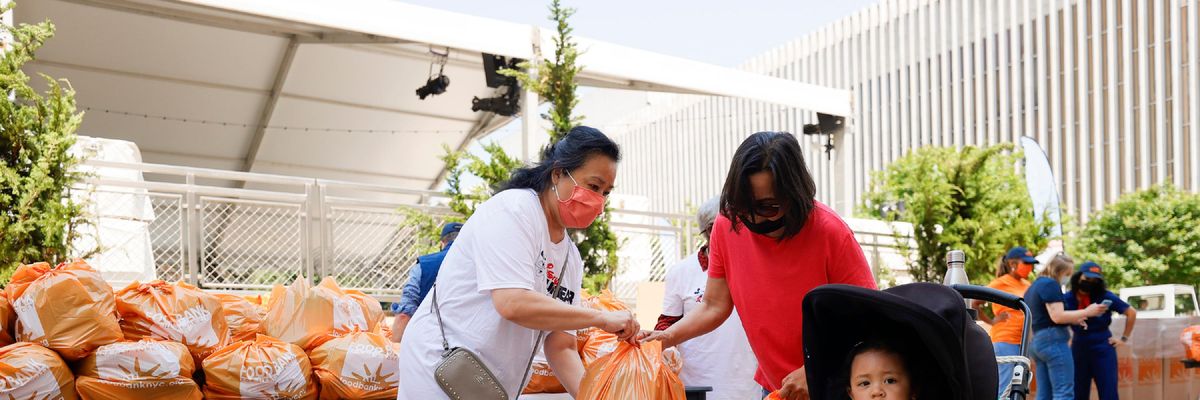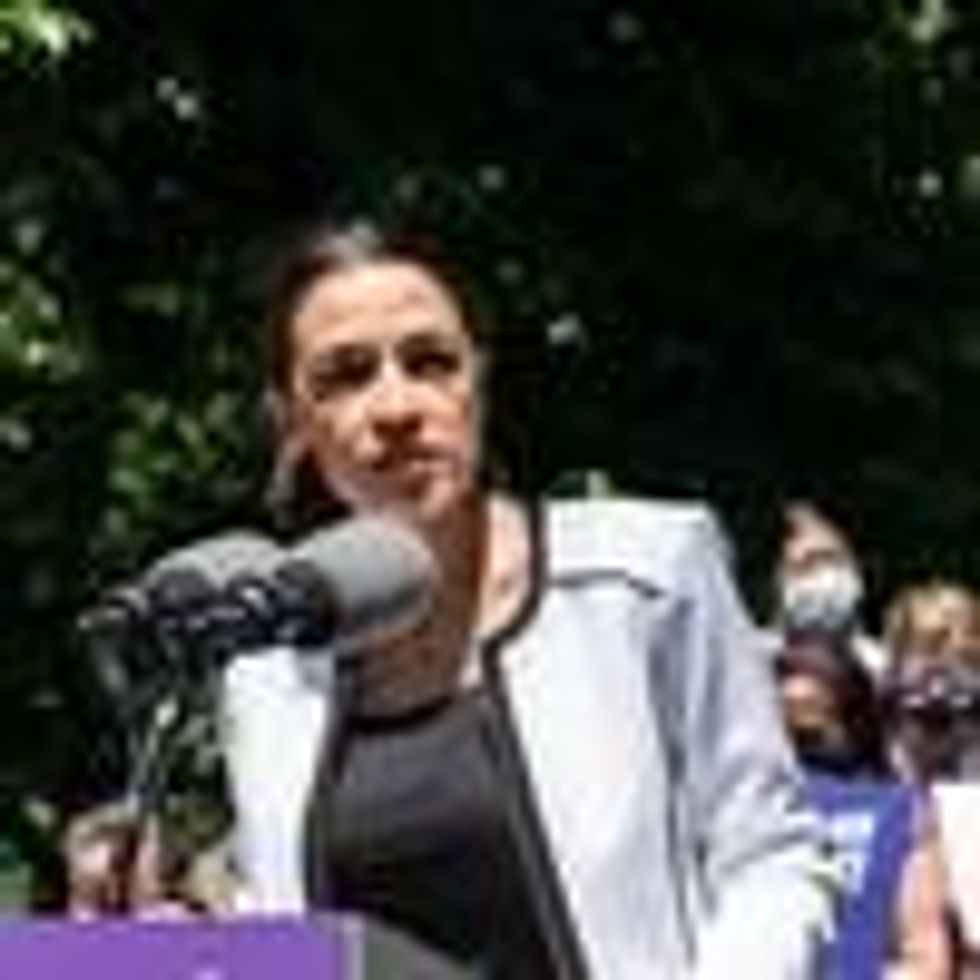
Local residents receive food during a food distribution event in New York City on May 26, 2021. (Photo: Michael Loccisano/Getty Images for Food Bank for New York City)
To donate by check, phone, or other method, see our More Ways to Give page.

Local residents receive food during a food distribution event in New York City on May 26, 2021. (Photo: Michael Loccisano/Getty Images for Food Bank for New York City)
"The notion of America being a land of opportunity is a fantasy for millions of people, reserved only for those of privilege."
\u201c"Policy choices\u2014from universal healthcare and paid leave to nutrition assistance and housing supports\u2014must reflect a long-term commitment to a fairer, healthier, more equitable nation." \n\n~ @DrRichBesser reflecting on @RWJF, @HarvardChanSPH & @NPR poll. https://t.co/uavOWKNKCd\u201d— Robert Wood Johnson Foundation (@Robert Wood Johnson Foundation) 1634128860
"The short-term policy response to the pandemic has revealed the type of nation we could be if we continue to move forward."
Related Content

Trump and Musk are on an unconstitutional rampage, aiming for virtually every corner of the federal government. These two right-wing billionaires are targeting nurses, scientists, teachers, daycare providers, judges, veterans, air traffic controllers, and nuclear safety inspectors. No one is safe. The food stamps program, Social Security, Medicare, and Medicaid are next. It’s an unprecedented disaster and a five-alarm fire, but there will be a reckoning. The people did not vote for this. The American people do not want this dystopian hellscape that hides behind claims of “efficiency.” Still, in reality, it is all a giveaway to corporate interests and the libertarian dreams of far-right oligarchs like Musk. Common Dreams is playing a vital role by reporting day and night on this orgy of corruption and greed, as well as what everyday people can do to organize and fight back. As a people-powered nonprofit news outlet, we cover issues the corporate media never will, but we can only continue with our readers’ support. |
"The notion of America being a land of opportunity is a fantasy for millions of people, reserved only for those of privilege."
\u201c"Policy choices\u2014from universal healthcare and paid leave to nutrition assistance and housing supports\u2014must reflect a long-term commitment to a fairer, healthier, more equitable nation." \n\n~ @DrRichBesser reflecting on @RWJF, @HarvardChanSPH & @NPR poll. https://t.co/uavOWKNKCd\u201d— Robert Wood Johnson Foundation (@Robert Wood Johnson Foundation) 1634128860
"The short-term policy response to the pandemic has revealed the type of nation we could be if we continue to move forward."
Related Content

"The notion of America being a land of opportunity is a fantasy for millions of people, reserved only for those of privilege."
\u201c"Policy choices\u2014from universal healthcare and paid leave to nutrition assistance and housing supports\u2014must reflect a long-term commitment to a fairer, healthier, more equitable nation." \n\n~ @DrRichBesser reflecting on @RWJF, @HarvardChanSPH & @NPR poll. https://t.co/uavOWKNKCd\u201d— Robert Wood Johnson Foundation (@Robert Wood Johnson Foundation) 1634128860
"The short-term policy response to the pandemic has revealed the type of nation we could be if we continue to move forward."
Related Content
